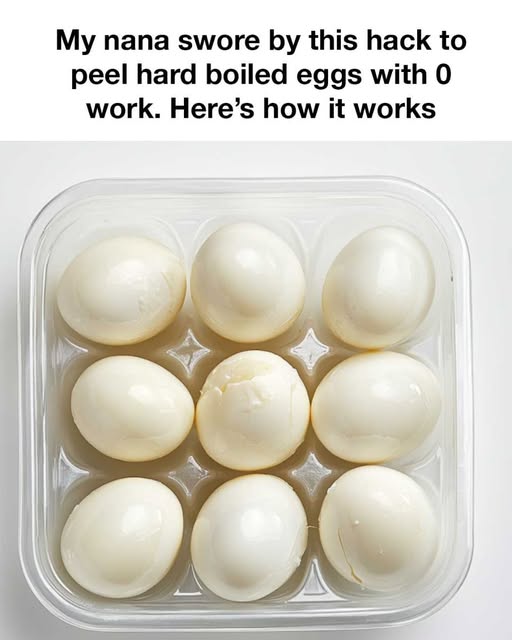ADVERTISEMENT
1. Start by placing your eggs in a pot and covering them with cold water. Make sure there’s about an inch of water above the eggs.
2. Bring the water to a boil on high heat. Once it reaches a rolling boil, reduce the heat to medium and let the eggs cook for about 9-12 minutes, depending on your desired level of doneness.
3. As the eggs are boiling, prepare a large bowl of ice water. You want enough ice to chill the water thoroughly.
4. Once the eggs are done, immediately transfer them from the boiling water into the ice bath. This stops the cooking process and causes the rapid temperature change needed for easy peeling. Let the eggs sit in the ice bath for at least 5 minutes.
5. Gently tap the egg on a hard surface to create cracks all over the shell. Roll the egg gently between your hands to loosen the shell.
6. Begin peeling from the air pocket, usually located at the wider end of the egg, and watch the shell come off effortlessly.
Common Mistakes and How to Avoid Them
One common mistake is skipping the ice bath. The drastic temperature shift is crucial for making the shell easier to peel, so don’t omit this step. Another error is overcooking the eggs, which can make the whites rubbery and more difficult to peel. Follow the recommended boiling times carefully. Lastly, some people rush the peeling process. Giving the eggs enough time in the ice bath ensures the air pocket forms properly, easing the entire peeling operation.
Benefits of Using This Egg Peeling Hack
The primary benefit is obviously the ease of peeling, reducing the hassle and mess from your kitchen routine. This method also leads to aesthetically pleasing eggs, free from gouges or rough surfaces caused by improper peeling. Moreover, maintaining egg integrity is important for many dishes, such as deviled eggs or salads, where presentation matters. Consistency is another advantage—you can expect perfectly peeled eggs every time you use this hack.
Nana’s Tips for the Best Hard Boiled Eggs
Nana always insisted on using slightly older eggs rather than fresh ones, as they peel more easily due to pH changes in the egg white over time. She also recommended adding a teaspoon of baking soda to the boiling water; this further raises the pH of the whites, making the shell separate even more easily. Another tip was to use a medium setting when boiling, to prevent the eggs from bouncing around and cracking prematurely. Lastly, she advised peeling the eggs under running water for any stubborn bits of shell remaining.
ADVERTISEMENT
ADVERTISEMENT
